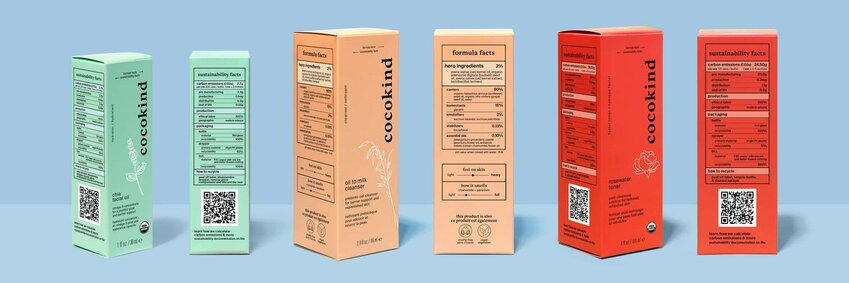 (Credit: Cocokind)
(Credit: Cocokind)As companies are under increasing pressure from customers, shareholders and governments to improve transparency about how their business contributes to GHG emissions reductions, a growing number of firms are pursuing carbon labeling as part of their strategies.
Allbirds, for instance, which plans to cut its carbon footprint in half by 2025 and to near zero by 2030, includes the amount of CO2 used in creating a sneaker or T-shirt on the inside of the product. Unilever recently announced the introduction of carbon labels on 70,000 products. Its product labels will show GHG emissions from manufacturing and shipping. And, L’Oreal has pledged to roll out environmental labelling by 2030.
Meanwhile, Just Salad will be the first U.S restaurant to put carbon labels on its menu. Each product on the menu will show GHG emissions from production of the ingredients.
Similar to nutrition labeling seen on common food and beverage products today, Cocokind packaging includes a list of ‘sustainability facts’ on its products, such as the carbon emissions before manufacturing, during production and distribution, and at end of life. The labeling also includes material used in the packaging and the percent of ethical labor, among other facts.
It is important to define the scope when calculating the carbon footprint of a product, according to the Carbon Trust, a non profit helping companies to improve their sustainability practices, which advises companies to use of one of two methods:
As part of its assurance and labeling services, Carbon Trust offers 7 different carbon labels to businesses:
Much like emissions and energy labeling on vehicles and appliances, experts expect the trend in carbon labeling is likely to go mainstream in the future.